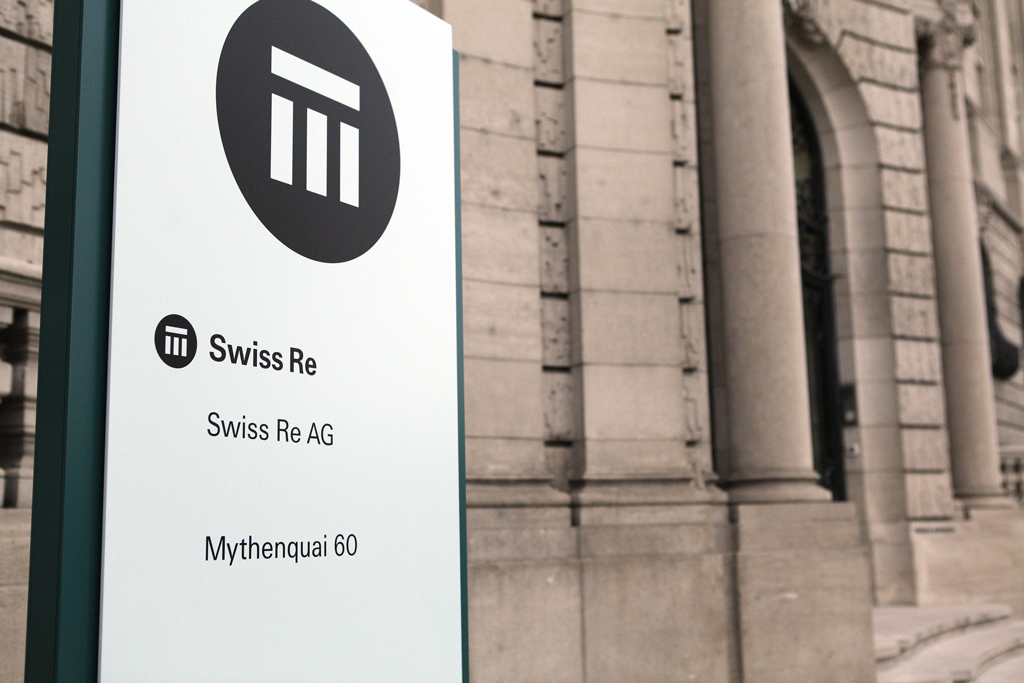Swiss Re on how EP100 and RE100 are driving cost savings
Lasse Wallquist, Swiss Re’s Senior Environmental Management Specialist
As a founding member of The Climate Group’s RE100 and one year on from joining EP100, Swiss Re – a world leading reinsurer – is going above and beyond its ambitious climate action commitments. In this blog, Lasse Wallquist, Swiss Re’s Senior Environmental Management Specialist, addresses the business case for becoming more energy productive and for switching to 100% renewable power.
At Swiss Re, we’re in the business of calculating risk. We believe that by joining RE100 and EP100, we’ve made a decision to future-proof our operations against the costs of climate change down the road. In terms of emissions reduction, our strategy is to “do our best and compensate the rest”. The first step of doing our best is increasing our energy productivity; a constant goal which sits at the heart of our Greenhouse Gas (GHG) Neutral Programme.
We know that transitioning to 100% renewable power is an essential outcome that we need to deliver on. But, for us, it wouldn’t be sensible to ‘go renewable’ without ensuring we optimize our energy system first.
Committed to energy productivity
Energy productivity has always been at the forefront of our emissions reduction transition, and so far, our annual energy costs have dropped by more than US$10 million. Our commitment has been to continuously improve our energy productivity by 2% per year, and at the end of 2016, our energy productivity was halved, compared to 2005. While we’ve reached our EP100 commitment earlier than expected, the campaign continues to support us in creating awareness around ways to increase energy productivity while decreasing our energy costs and our carbon footprint.
We’ve hit our EP100 target already by, for example, decommissioning existing office buildings and moving into more energy efficient workspaces. Our new “Swiss Re Next” headquarters in Zurich has an energy productivity rate per workplace that is 80% higher compared to the former building.
Top management of many companies—due to the nature of their business—are not aware of the cost of their electricity bills. By failing to consider this crucial area of their operations, companies not only miss out on the opportunity to significantly reduce their own energy costs, but they also miss the chance to make lasting changes for a greener tomorrow. As a financial services company, energy productivity might not seem like an obvious objective for our management, but EP100 has helped us in creating awareness of energy productivity and educating our teams about opportunities to do more.
Walking the talk on renewables
In the context of Swiss Re’s strong record on climate action, going 100% renewable is an important milestone in how we “walk the talk”. It helps us to illustrate our concrete efforts for our customers, our employees, and the wider public, whose enthusiasm for our efforts has been remarkable. We started sourcing renewable power at four European locations in 2005, and expanded to 25 locations across Asia, Europe, North America and Oceania by 2013. Today, I’m proud to say that 84% of the power Swiss Re consumes comes from renewable sources. RE100 continues to provide a great platform for companies to learn from each other—to exchange best practices and to cooperate on concrete RE projects.
To reach our RE100 goal, we believe that carbon emissions should be avoided directly at the source whenever possible, and to this end, we believe strongly in investing in on-site renewables. It just makes sense, both environmentally and economically.
We’re financing our own solar power production in Armonk, New York, where we’ve invested about US$7 million into our largest solar project so far—a 2MW solar power plant in operation at Swiss Re Americas’ headquarters. The plant has the capacity to generate more than 60% of the campus’ power requirements and a fifth of our total US consumption. Alongside its environmental merit, the Armonk solar project also has an attractive payback of less than seven years.
We’ve also started installing solar energy facilities on the rooftops of Swiss Re offices in Switzerland, Italy, and the UK. In Bangalore, India, we are just about to complete a 400kW installation with a payback of less than five years. With a life expectancy of over 25 years, we know that our solar power plants will not only help us generate clean, sustainable power, but will also do so in a way that will save Swiss Re millions of dollars in the coming decades.
Sharing our experiences
By 2020, we will source 100% of our power from renewable sources, while also ensuring that we use that power in the most productive way possible. We are also continually engaging with other companies to join us in the direct sourcing of green power and sharing our experiences and best practices through platforms like RE100 and EP100. On the asset management side we avoid investments in companies that generate 30% or more of their revenues from thermal coal mining. In our re-/insurance business we have decided to limit our support for activities related to thermal coal utilities and thermal coal mining.
We hope that, by 2020, even more companies will have committed to energy productivity and renewables. Why wouldn’t they? We know that our strategy benefits the bottom line, increases the resilience of our energy infrastructure and let’s our employees and customers know that we are committed to making the world a cleaner, greener place to live. Simply put, renewables and energy productivity innovation are reaching a point of normalcy that we can’t—and won’t—turn back from.

